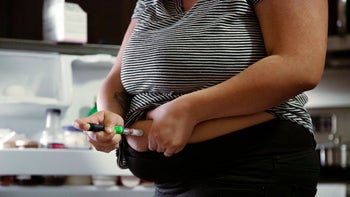
Back-to-School Rush Spurs Demand for Epinephrine Auto-Injectors Amid Shortage
Key takeaways:
Epinephrine auto-injector fills increased as students prepared to go back to school during the summer.
This may worsen existing shortages of the medication.
The FDA’s recent approval of neffy, a needle-free nasal spray option for anaphylaxis, offers a new alternative for those unable to fill their prescription.

During this year’s back-to-school season, demand for epinephrine (EpiPen, EpiPen Jr, Adrenaclick, Auvi-Q) autoinjectors spiked. And that may intensify existing shortages of the medication.
Epinephrine prescriptions typically peak in August as parents and schools scramble to refill the autoinjector before the new school year begins. In previous years, we've usually seen a nearly 40% increase in fills from July to August. Although this year’s increase in fills between July and August was 31%, overall fills for EpiPen were higher compared to previous years.
Meanwhile, several epinephrine auto-injectors were facing a shortage as of August 16, 2024. Both Mylan and Amneal (EpiPen, EpiPen Jr, and epinephrine) were experiencing back orders for auto-injectors and unable to estimate a release date for the back orders.
A supply disruption often leads to a medication shortage. During a shortage, a pharmacy may not be able to fill all or part of a prescription. In this case, patients may need to seek an alternative or wait for availability.
How to navigate this shortage
Here’s what to do if you can’t fill your epinephrine due to shortages.
Talk to your pharmacist. They may be able to direct you to a different pharmacy that has epinephrine. Or they may know when a new shipment will arrive.
Speak to your prescriber. They may also be able to help you find a pharmacy with epinephrine or can suggest an alternative. The FDA approved neffy, the first needle-free spray for anaphylaxis, on August 9, 2024. ARS Pharmaceuticals, neffy's manufacturer, expects the spray to be available before October 4. Your prescriber can tell you whether the nasal spray is an option for you.
Reach out to your insurance. They may be able to expand coverage for an alternative, such as neffy.
How much do epinephrine autoinjectors cost?
If you’re paying out of pocket, the average cash price for a pack of two injectors can range from nearly $300 to over $1,600. The top three most-filled epinephrine auto-injectors are the cheaper, generic ones (see table below).
In general, most Medicare and insurance plans cover epinephrine autoinjectors. But they may restrict the amount they’ll cover.
Most patients with commercial insurance can expect to pay $25 for neffy. Those without insurance or those with high out-of-pocket costs may be able to bring down the cash price to $199 for two doses using GoodRx.
Summing it all up
Epinephrine auto-injector fills increased as students got ready to go back to school. The increase in demand may cause some supply chain strain due to an existing shortage. Talk to your prescriber about alternatives if you’re having trouble filling your prescription.
Methodology
Using a representative sample of U.S. prescription fills, we calculated the fill rate as the number of fills for epinephrine autoinjectors divided by the number of fills of all drugs, after removing drugs with a seasonality component in prescribing patterns. Prescription fills were reported from retail pharmacies from January 1, 2021 to July 27, 2024.
Epinephrine medications included in analysis: Autoinjectors: epinephrine (EpiPen), epinephrine (Adrenaclick), epinephrine (EpiPen Jr), EpiPen, EpiPen Jr, Auvi-Q.
Read more like this
Explore these related articles, suggested for readers like you.
Why trust our experts?


References
American Society of Hospital Pharmacists. (2024). Epinephrine auto-injectors.
ARS Pharma. (2024). ARS Pharmaceuticals receives FDA approval of neffy® (epinephrine nasal spray), the first and only needle-free treatment for type I allergic reactions, including anaphylaxis.
U.S. Food and Drug Administration. (2024). FDA approves first nasal spray for treatment of anaphylaxis.



























